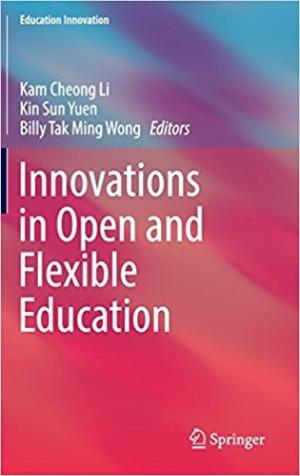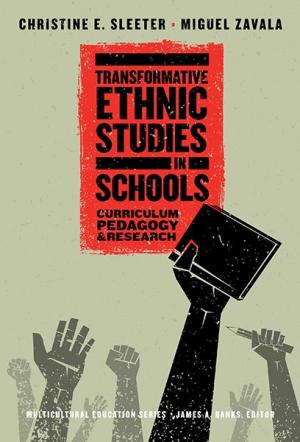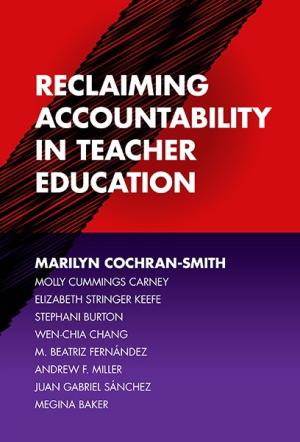Resources by Elizabeth Yomantas

Innovations in Open and Flexible Education is a timely collection of research which examines various aspects of open and flexible education in the global community’s changing landscape of teaching and learning. The book is written for professors, academics, researchers, students, educational practitioners, and administrators to learn the latest empirical research in regard to open and flexible education. The book is organized thematically with a focus on four major themes: open/flexible curriculum and pedagogy, mobile and ubiquitous learning, digitized media and open educational resources, and tracking and analysis of student learning. The book includes qualitative and quantitative research studies, empirical and case studies, statistical analyses, descriptive surveys, and interviews. Part I flows seamlessly as the contributing authors discuss historical perspectives, student perspectives, budget planning, needs assessment, models of the flipped classroom, cross-country analysis, and massive online open courses. Part II focuses on the use of mobile devices, specifically in vocational education and training, preferences and readiness for usage, the use and design of specific apps for learning, and learning management systems. Part III of the book examines digitalized media and open educational resources including game-based learning, flipped massive online open courses, open educational resources, videos in blended learning, and media literacy. The final section of the book, Part IV, analyzes student learning including the use of big data in teaching and learning, instant messaging, application programming interfaces to track learning, reinforcement learning, and the design of data-logging devices. The findings of this book are exciting. According to Lee, the purpose of flexible learning is to “achieve equity, efficiency, and effectiveness” (31) in education. As the editors note in the introduction to the book, there is a global trend of knowledge becoming more publicly accessible and less reserved for the privileged. As education is becoming more open and consequently more flexible, education at large is more available to all people. This book highlights the latest research on this topic, which may lead to educational stakeholders creating more open and flexible landscapes in their educational communities. As Christian scholars, this must be one of our aims—to make education more inclusive and flexible to welcome and benefit all learners. The organization and structure of the book is not only informative but is enjoyable to read. The editors selected topics that are connected but remain distinctly different, which creates an interesting and diverse reading experience. Furthermore, the content in this book leads to much introspection on the part of the reader; the reader is challenged to consider what open and flexible pedagogies they have adopted in order to benefit all students. The research provides a fertile ground for discussions of education theory, pedagogy, and praxis. The book is comprised of twenty-three chapters that are written with experiences and perspectives from Asian countries (including Australia) and is a part of a research book series titled Education Innovation. For further work on this topic, it would be valuable for the editors to develop a book series that focuses on research from different continents on open and flexible education. The contents of this book demonstrate the diversity and richness of this topic, so perhaps this text could be expanded into a series.

This timely and compelling book conceptualizes Ethnic Studies not only as a vehicle to transform and revitalize the school curriculum but also as a way to reinvent teaching. Drawing on Sleeter’s research review on the impact of Ethnic Studies commissioned by the National Education Association (NEA), the authors show how the traditional curriculum’s Eurocentric view of the world affects diverse student populations. The text highlights several contemporary exemplars of curricula—from classroom level to district or state-wide—illustrating core concepts in Ethnic Studies across a variety of disciplines and grade levels. A final chapter considers how research on P–12 ethnic studies can be conceptualized and conducted in ways that further both advocacy and program sustainability. Transformative Ethnic Studies in Schools is essential reading for educators working to transform schools by rehumanizing learning spaces for all students. (From the Publisher)

Teacher accountability has been a major strategy for “fixing” education for the last 2 decades. In this book, Cochran-Smith and her research team argue that it is time for teacher educators to reclaim accountability by adopting a new approach that features intelligent professional responsibility, challenges the structures and processes that reproduce inequity, and sustains multi-layered collaboration with diverse communities. The authors analyze and critique major accountability initiatives, including Department of Education regulations, CAEP accreditation procedures, NCTQ teacher preparation reviews, and edTPA, and expose the lack of evidence behind these policies, as well as the negative impact they are having on teacher education. However, the book does not conclude that accountability is the wrong direction for the next generation of teacher education. Instead, the authors offer a clear and achievable vision of accountability for teacher education based on a commitment to equity and democracy. (From the Publisher)